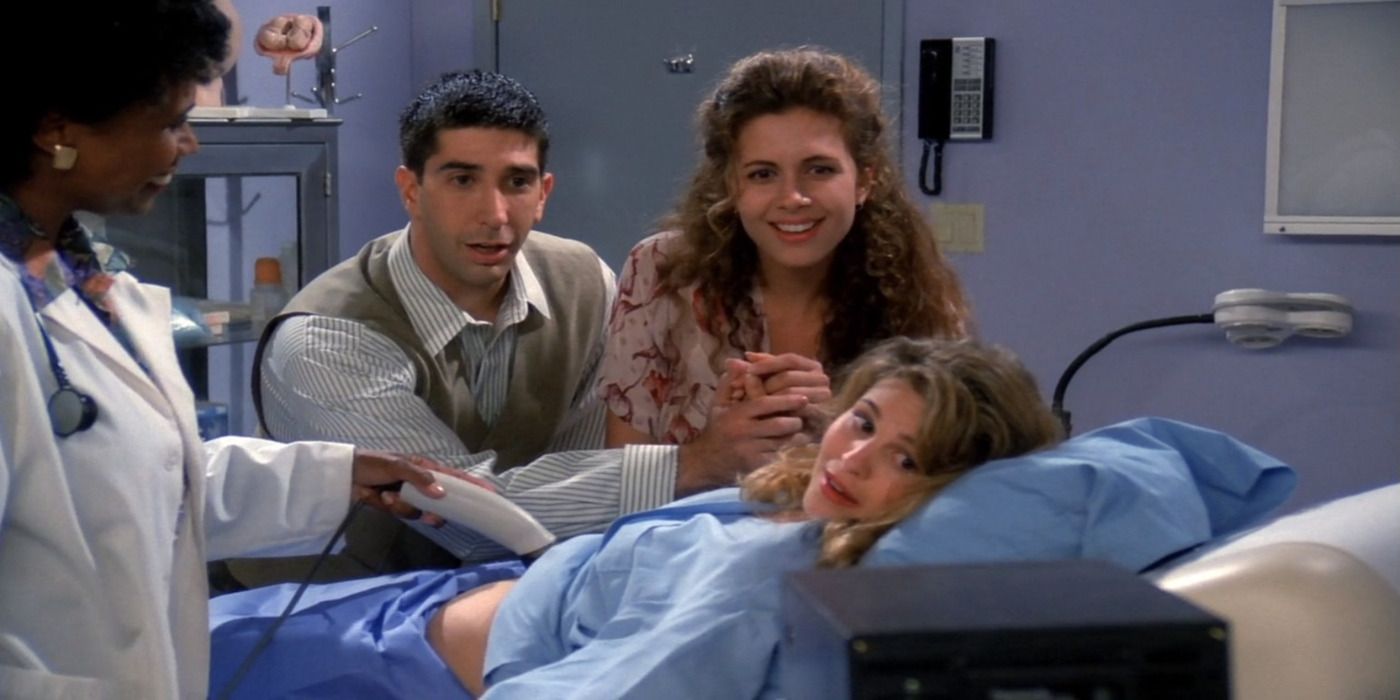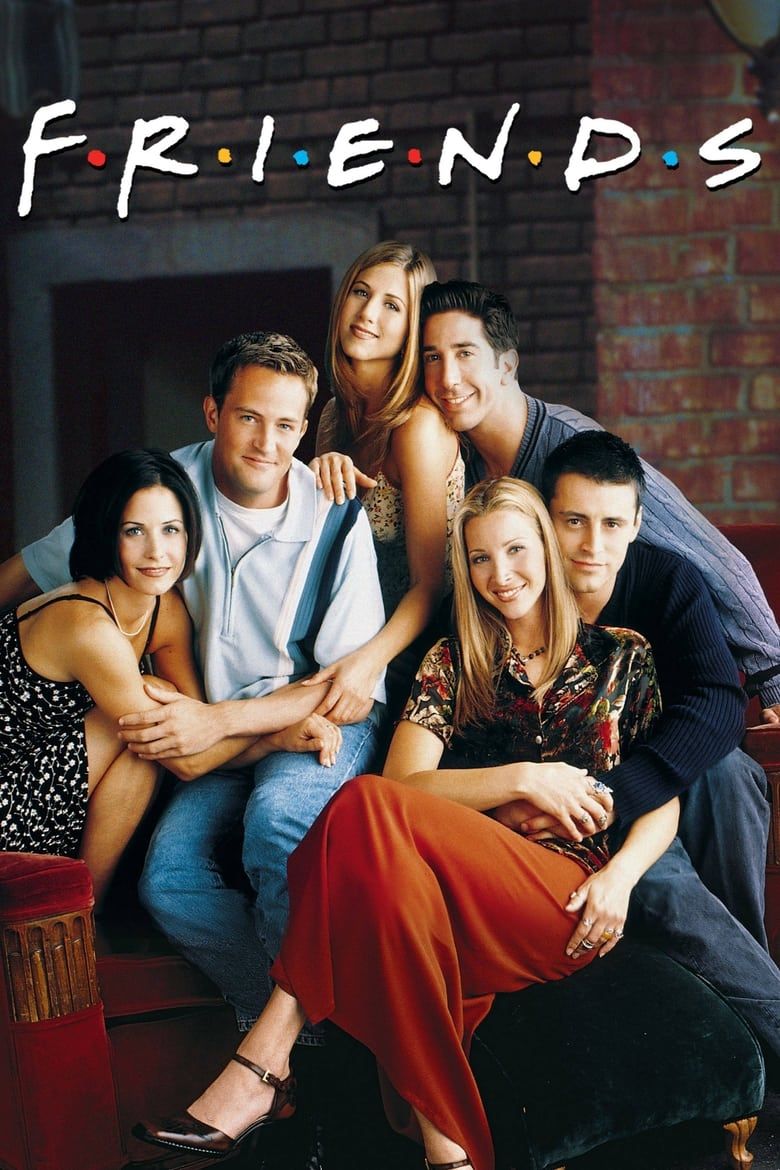It’s no secret that Friends is without doubt one of the most iconic sitcoms in television history, however whether or not it may be thought of timeless is debatable attributable to some extremely questionable moments. The NBC sitcom grew to become a cultural touchstone within the late ’90s and early 2000s, with its immediately quotable one-liners and a core solid of six actors whose chemistry stays unmatched.
Nevertheless, whereas Pals continues to entertain audiences, there’s no denying that a few of its content material hasn’t aged properly. One Pals storyline, specifically, stands out not solely as dated and troublesome, a lot in order that it may be jarring to observe at this time.
Even in an period the place nuance wasn’t anticipated from sitcoms, Pals mishandled this arc in a approach that felt mean-spirited, careless, and turned critical emotional misery into the butt of the joke. Whereas Pals thrived on roasting its characters, the treatment of Ross Geller (David Schwimmer) and his psychological well being struggles is one thing the present bought utterly flawed.
Pals Handled Ross’s Psychological Well being As A Joke
The Present Mocked Ross’s Psychological Well being Struggles As a substitute Of Treating Them With Any Form Of Seriousness
Ross Geller was all the time a little bit high-strung, however Pals didn’t simply painting him as neurotic; arguably, it made his psychological well being a recurring punchline. In a number of episodes, Ross exhibited conduct that closely prompt he was anxious and depressed. However as an alternative of help, he was met with ridicule.
A standout instance was the Pals episode “The One With Ross’ Sandwich,” the place Ross has an explosive response after somebody at work eats his Thanksgiving leftovers. Whereas his outburst might sound exaggerated on the floor, it’s really a serious pink flag about his psychological state.
Ross’s over-the-top reaction led to compelled day without work work and a referral to remedy, however his buddies’ response was to deal with the scenario like a joke. Monica (Courteney Cox), Joey (Matt LeBlanc), Chandler (Matthew Perry), and even Rachel (Jennifer Aniston) did not present an oz of concern.
Slightly than encouraging Ross to take his psychological well being significantly, they teased him about it. The sandwich meltdown wasn’t simply an remoted outburst, both. It was the end result of a number of stressors in Ross’s life, together with his failed marriages, points with Rachel, and the obligations of fatherhood.
In a hilarious character-driven comedy the place all of the central personalities had their quirks, Ross’s conduct was the one one pathologized, then ridiculed. His trauma and rising instability had been constantly diminished to jokes. In the meantime, the remainder of the group in Friends was let off the hook for poisonous conduct, like their reactions to Ross’ struggles.
Associated
Friends: 10 Things About Ross That Have Aged Really Well, Actually
Followers of Pals typically disparage Ross for being much less likable than the opposite characters. However, in some respects, the character has aged very properly.
Watching Pals at this time, the scenes and episodes the place Ross’s emotional well-being was performed for laughs really feel shockingly callous. Even within the ’90s, there was sufficient consciousness round remedy and psychological well being to have made room for extra empathy. As a substitute, Pals turned Ross right into a punchline — one thing that hasn’t aged properly within the slightest.
Ross Was Deeply Flawed, However That Doesn’t Make How He Was Handled OK
Ross’s Has Authentic Trauma, And Mocking It Feels Unfair In Hindsight
Ross Geller was by no means probably the most universally cherished member of the Pals ensemble. He might be whiny, condescending, and possessive — particularly in his relationship with Rachel. Nevertheless, decreasing him to only these qualities misses the larger image.
Sure, Ross does lots of issues that are not good, however his reactions to occasions in his life are a product of his experiences. Ross’s flaws and less-desirable quirks are clearly a product of a number of private traumas, and whereas he doesn’t all the time course of them in wholesome methods, the present by no means offers him area to be something however the group’s emotional punching bag.
From the very begin, Ross is launched as somebody reeling from his first marriage ending as a result of his spouse, Carol (Jane Sibbett), gained the braveness to dwell her fact and enter a same-sex relationship. Whereas this improvement wasn’t anybody’s fault – and Carol leaving was absolutely justified – it’s nonetheless a serious life upheaval. That’s not one thing most individuals get well from simply.
Ross later has a baby, Ben, with Carol, and has to deal with co-parenting his son alongside Carol’s spouse, Susan. Having to deal with such a scenario with grace and tact would take a toll. It’s a weight that’s separate from Carol and Ross’s divorce, rooted completely in Ross not with the ability to be current for a lot of his son’s adolescence. Even with out the context of how and why Ross and Carol cut up, not being there for day by day of Ben’s infancy would have a major impression on Ross’s psychological well being.
Ross’s trauma is mined for laughs whereas the opposite characters’ points are sometimes handled with extra sensitivity.
Add to that the truth that Ross later marries and divorces Emily (Helen Baxendale), after which unintentionally says Rachel’s title on the altar? That’s loads to hold. Nevertheless, the present by no means pauses to acknowledge how damaging these repeated losses may be.
Phoebe (Lisa Kudrow) even calls him “Divorco” in a single scene, which is admittedly humorous – however in hindsight, it’s an instance of how the present refused to take his ache significantly. As a substitute, Ross’s trauma is mined for laughs whereas the opposite characters’ points are sometimes handled with extra sensitivity.
Ross’s abandonment points and concern of being alone are clearly on show all through the collection, significantly throughout his poisonous on-again/off-again relationship with Rachel. Whereas he does make loads of errors in that dynamic, Pals not often explores the why, solely the what.
In a long-running comedy that tackled loads of critical life milestones — marriage, infants, profession adjustments — it’s unusual how little room was made for emotional complexity. Ross’s flaws had been actual, however the present handled them like they had been all his fault, and that’s what makes it laborious to observe at this time.
Even The Instances Ross Tried To Get Assist Have been Performed For Laughs
Ross’s Efforts To Search Help And Therapeutic Have been Continuously Mocked By His Closest Pals
What’s much more irritating about how Pals dealt with Ross’s psychological well being is that he really tried to assist himself. He knew he was struggling and made a number of efforts to enhance his well-being, however each was performed for laughs. The result’s that Ross turns into a personality who’s not simply struggling, however being actively undermined each time he tries to get higher.
One of many earliest indicators of Ross searching for help is in “The One with the Monkey,” when he adopted Marcel, a capuchin monkey, to deal with loneliness after his divorce. Immediately, emotional help animals are well known and revered. Nevertheless, in Pals, the thought was handled as absurd.
The group mocked Ross endlessly for needing a companion, ignoring the very actual grief and isolation that led him to get Marcel within the first place. What ought to have been a candy, humanizing second for Ross was was one more method to belittle him.
The present doesn’t simply snort at Ross’s ache, it laughs within the face of the therapeutic course of.
Later, in “The One With Ross’ Sandwich,” it’s revealed that Ross was on medicine prescribed by a psychiatrist. Slightly than applaud him for searching for skilled assist — a progressive transfer for a ’90s sitcom — the revelation was used to make him look worse.
Ross’s buddies confirmed little understanding or help, as an alternative specializing in how erratic his conduct had change into. There was a broader difficulty right here: the present did not simply snort at Ross’s ache, it laughed within the face of the therapeutic course of. In a comedy the place everybody else was allowed to be quirky or dysfunctional with out consequence, Ross was punished for making an attempt to develop.
The therapy of Ross can’t merely be defined away as a product of the completely different viewers expectations within the Nineties and 2000s. The present may have achieved one thing significant with Ross’s emotional journey, however as an alternative, it doubled down on mocking him for even daring to get higher. For a collection that prides itself on the significance and worth of friendship, how Ross is handled in Pals stands out as a critical and unforgivable misfire.




